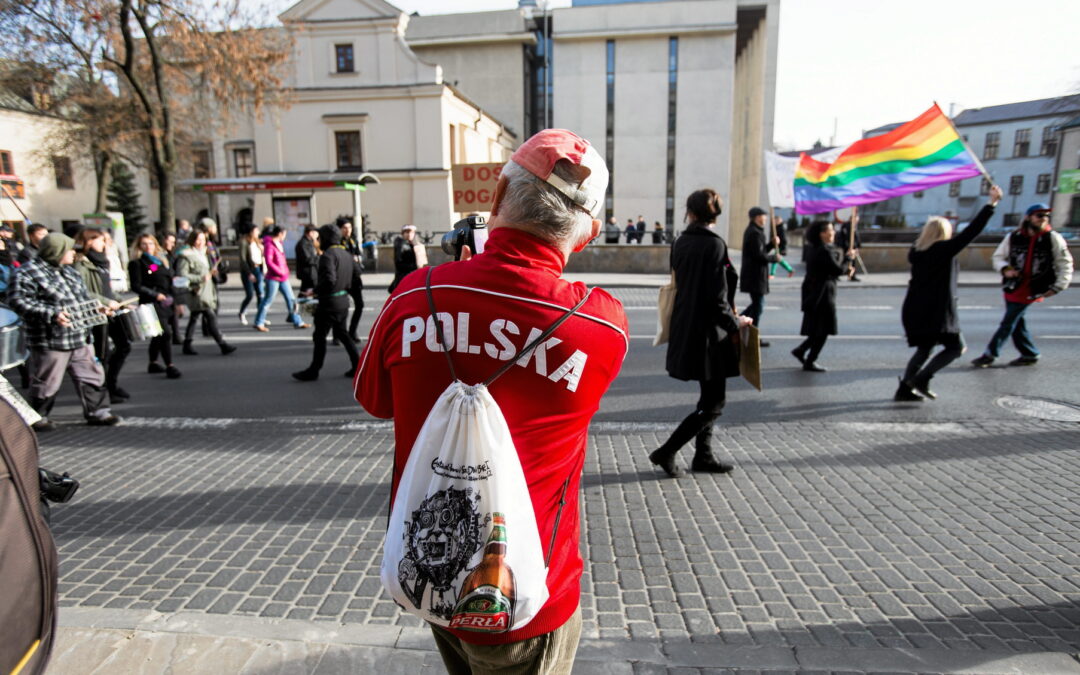Poland’s government has sent a reply to the European Commission in response to it putting on hold tens of millions of euros in funds for Polish regions that have adopted anti-LGBT resolutions.
“All people, regardless of their sexual orientation and place of residence, enjoy legal protection in Poland,” wrote Anna Schmidt, the government’s plenipotentiary for equal treatment, who is also a deputy minister and an MP for the ruling national-conservative Law and Justice (PiS) party.
Schmidt notes that the declarations made by regional authorities are not acts of law. They “do not prohibit the presence of any persons in the area” nor “interfere with the right to associate and organise public assemblies” or with the “freedom of economic activity and teaching in public schools”.
She explained that, under Polish law, including the constitution, “no one may be discriminated against in political, social or economic life for any reason…including on the grounds of sexual orientation”.
The minister also noted that local authorities are “democratically elected and independent of the [national] government”. But she said that the Ministry of Funds and Regional Policy had reminded local governments of the need to comply with EU rules on non-discrimination.
Over 100 authorities have adopted anti-LGBT resolutions. Most declare opposition to “LGBT ideology”, while others are so-called “family charters” that reject same-sex marriage and promise to “protect children from moral corruption”. They have passed with the support of local elected representatives of PiS.
Earlier this month, the commission wrote to the authorities in five Polish provinces – which together make up almost 30% of the country’s population and territory – calling on them to address Brussels’ concerns over their anti-LGBT declarations.
It warned that, in the meantime, the disbursement of some funds from the EU’s coronavirus recovery package would be “put on hold”. In one of the provinces alone, Małopolska, around €33.5 million (151 million zloty) is reportedly at stake.
Nevertheless, last month the local parliaments in both Małopolska and Lublin – another of the provinces in question – voted to retain their resolutions against “LGBT ideology”. Last year, the justice ministry promised a “permanent support mechanism” for places that lose EU funds, though it has not since created one.
Other European funds have also been put at risk by the anti-LGBT declarations. Last year, the European Commission rejected funding applications from six such Polish municipalities because they failed to “respect EU values and fundamental rights”.
The Norwegian foreign minister announced that local authorities which have passed anti-LGBT resolutions will not receive money from the so-called Norway Grants, as well as the related EEA Grants, to which Norway is the main contributor and Poland is the largest recipient.
Earlier this year, councillors in the town of Kraśnik voted to withdraw their anti-LGBT resolution due to the danger of losing millions in Norwegian funds. Previously, another town, Nowa Dęba, had done the same.

Daniel Tilles is editor-in-chief of Notes from Poland. He has written on Polish affairs for a wide range of publications, including Foreign Policy, POLITICO Europe, EUobserver and Dziennik Gazeta Prawna.




















